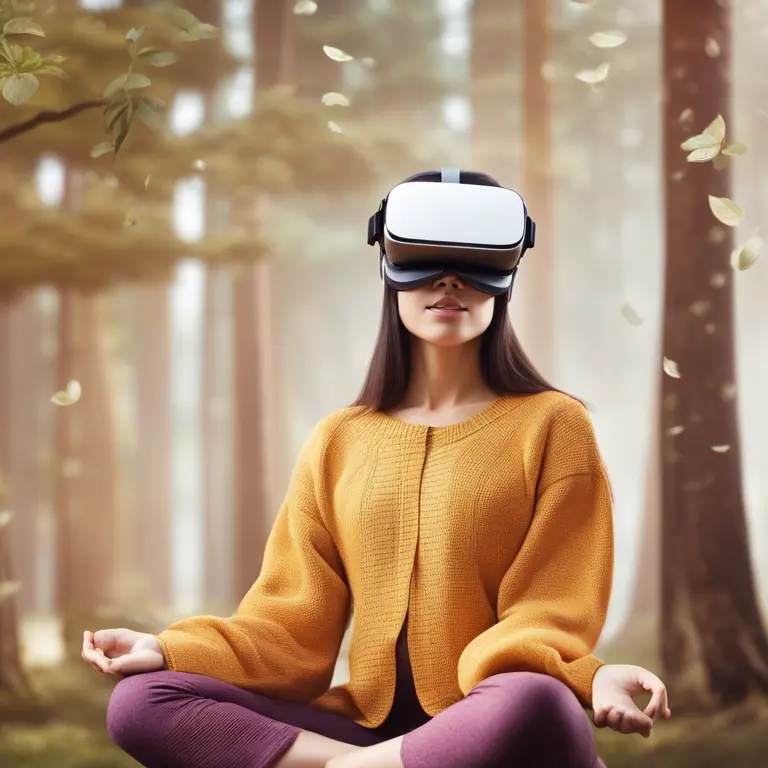
The Interplay of Meditation and Mindfulness
An in-depth examination of the distinctions and connections between meditation and mindfulness practices.
article by Hina Kurosawa
Defining Meditation and Mindfulness
Meditation and mindfulness, two practices often interwoven in the fabric of self-help and personal growth, are sometimes mistakenly considered identical. Yet, these practices, while complementary, have distinct qualities that set them apart. Meditation is an ancient practice that encompasses various techniques, including concentration and contemplation to achieve a mentally clear and emotionally calm state. On the other hand, mindfulness is the awareness that emerges through paying attention, on purpose, in the present moment, and non-judgmentally. Together, these practices nurture a profound understanding of one's mind and can contribute to overall well-being.

Historical Roots and Evolution
Tracing back thousands of years, meditation has roots in religious traditions such as Buddhism and Hinduism. Its evolution has brought forth an array of practices, from the focused attention of transcendental meditation to the movement-oriented techniques of Tai Chi. Mindfulness, while an integral part of Buddhist meditation, has recently been popularized through Mindfulness-Based Stress Reduction (MBSR) programs and other secular adaptations. As of 2024, mindfulness has transcended its spiritual origins to become a mainstream, evidence-based practice employed in multiple facets of life, from education to the corporate world.

Scientific Insights and Health Benefits
Research into meditation and mindfulness has expanded, revealing a host of health benefits such as reduced stress, improvement in mood, enhanced cognitive function, and increased immune response. Prominent studies into the neuroscience of mindfulness from institutions like the Massachusetts Institute of Technology (MIT) and Harvard University have illuminated how these practices remodel the brain's structure, leading to lasting changes in thought patterns and emotional regulation. Recognizing these benefits, many have incorporated these practices into their daily routines as essential tools for health and longevity.

Practical Applications in Daily Life
Meditation often requires setting aside time to engage in a specific practice, which can range from a few minutes to much longer sessions. Techniques vary widely, including breath-focused practices, mantra repetitions, and guided visualizations. Mindfulness, while it can be formalized in similar sit-down exercises, also emphasizes an informal practice—integrating awareness into everyday activities, like eating, walking, or even during conversations. By 2024, the proliferation of digital health apps and virtual wellness platforms has made it more accessible than ever to incorporate these practices into one's life seamlessly.

Advancing Personal Growth and Development
By integrating meditation and mindfulness, individuals are empowered to foster personal development, emotional resilience, and psychological flexibility. These practices can complement each other; for example, a regular meditation practice can deepen the capacity for mindfulness, while being mindful can enhance the meditative experience. This synergy is recognized in advanced mindfulness programs, which may combine meditation with reflective practices and self-inquiry to support personal evolution and a greater sense of purpose.
Cultural and Global Perspectives
As the global community becomes increasingly connected and cultural exchanges more common, meditation and mindfulness encounter new interpretations and applications. From stress reduction workshops in Tokyo to leadership seminars in Berlin, these practices are being tailored to suit a variety of cultural contexts and societal needs. Recognizing these diverse approaches is crucial as we continue to embrace these practices not as static traditions but as evolving modalities with universal potential.
Published: 1/18/2024
Modified: 1/18/2024
More predictions
Come back here soon to learn more about yourself and your future


Easing Pain With Mindfulness Meditation
Discover how meditation can be a powerful tool for pain management, offering natural relief and mind-body harmony.


Exploring Meditation in Psychological Practice
Delve into the psychological perspective on meditation, its benefits, and applications in modern mental health practices.


The Significance of Modern Meditation
Discover the crucial role meditation plays in fostering well-being, focus, and balance in today's fast-paced world.